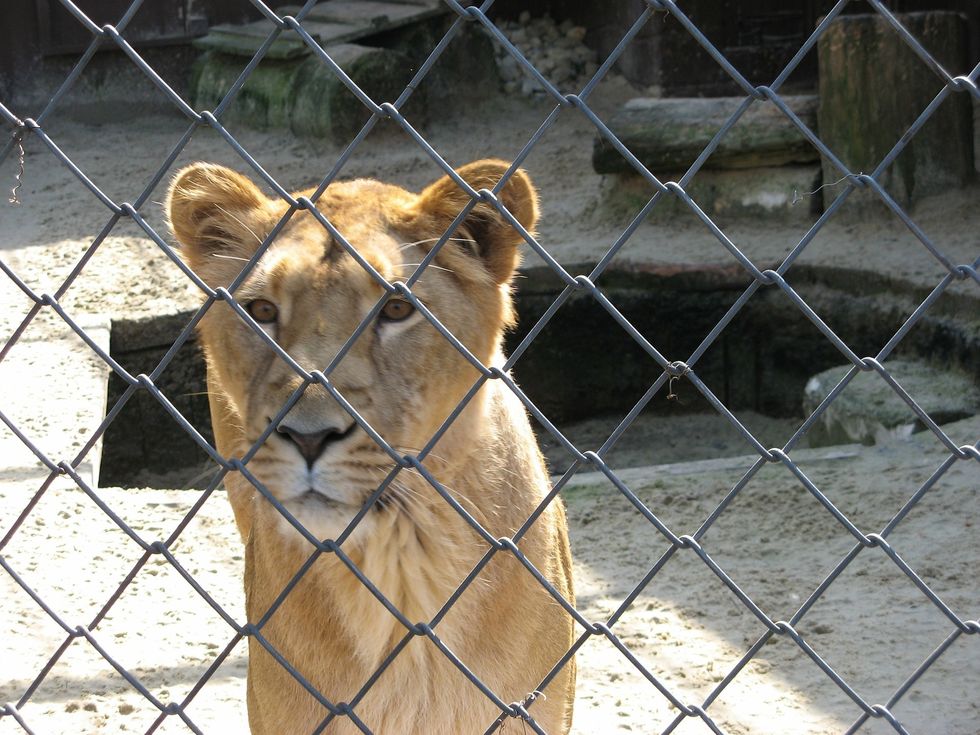We've all been to the zoo at one point or another. We've all been captivated by the lions and the Tigers wanted to feed the giraffes or swim with the sharks in the aquarium. The zoo is something of a childhood staple for most kids. You either got to go on a school field trip or if you were really lucky, you're parents took you while you were on summer vacation and even bought you a cool new stuffed animal from the gift shop when the day was done. Now, as magical as that all was when we were little kids, we're grown up now and it's time we realize just how unethical zoos really are.
Again, I'm not here faulting anyone who's ever given the zoo way too much money to go gawk at the chimps because god knows I've definitely done the same. But I won't do it anymore. When you're a kid, the idea of being able to see real-life monkeys and zebras and who knows what else up close and personal seems like the coolest thing in the world but if you're anything like me, you started to question how ethical a zoo could really be.
As a kid I never asked if the animals were happy or well cared for, I just assumed that they were because why would I think anything else? Those enclosures seemed to go on for miles and miles, so of course, I figured they had plenty of room to frolic and play. But at some point, I realized just how big these wild animals really were. There was no way that a rhinoceros that weighs several tons could be happy in an enclosure where it could do little more than pace or lie down. But more than my frustration about the big cats and the fish, I had a problem with the idea of caging monkeys and whales.
Humans always talk about how wild it is that monkeys and people are so similar but often don't have an issue with putting them in cages. That's like someone putting a human being in a cage and when they complain about being bored, or sad, someone telling them to suck it up because it's educational or cool. Monkeys have families just like people, they feel the same emotions as us, happiness, sadness, anger, frustration, love and grief and the same can be said about whales. These animals are sentient beings and I understand the educational value of being able to teach people, mostly young kids, about animals on a sort of up close and personal level but it just isn't ethical.
Zoo animals aren't provided with space they need to roam and exercise and lead healthy lives. Most of these animals kept in zoos are predators, meaning that they have a natural hunting instinct that isn't being fulfilled in the zoos. Not only are the animals not getting all of their natural needs met, but keeping them behind glass so that humans can stare at them and take their pictures while tapping on the glass can breed an aggression in the animals that make them both unhappy and also makes them a potential danger to human beings and or other animals in the enclosure.
Often the counter-argument to the idea that zoos are unethical is that most of the animals in zoos are either injured or were raised in captivity and will not be able to survive in the wild. While this is true, there are better and often times more ethical alternatives to zoos where those injured and underprepared animals can stay safe and be better off. Sanctuaries are usually better than zoos as far as space goes. They aren't full of glass enclosures with fake nature. Sanctuaries are usually pieces of natural land reserved for the care and preservation of a certain species. This ability to have more space to roam and explore has positive effects on animals mental, physical and emotional health. All in all, sanctuaries are just better alternatives to zoos. So, next time you think about how cool the zoo is, remember that there's always more to the picture than it seems.
















